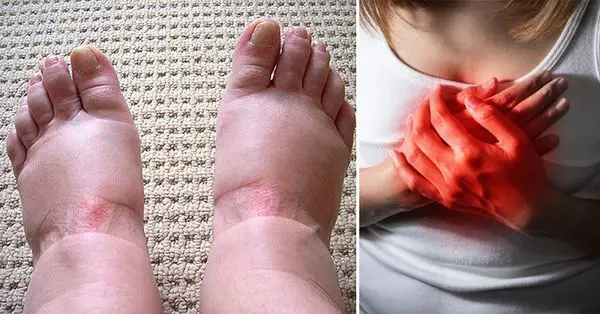Understanding Swollen Feet: Causes, Remedies, and When to Seek Help
Swollen feet can feel heavy, uncomfortable, and sometimes painful. While pregnancy or prolonged standing are common culprits, there are several other potential causes for this condition. Below, we explore why your feet might be swelling, simple remedies to try, and when to seek medical attention.
In many cases, elevating your feet or soaking them in cool water can reduce swelling. However, sudden or persistent swelling may indicate an underlying health issue that requires professional evaluation.
Common Causes of Swollen Feet
- Deep Vein Thrombosis (DVT)
A blood clot in the deep veins, usually in the legs, can cause swelling, heaviness, or pain. If untreated, DVT may lead to serious complications like pulmonary embolism. Seek immediate medical attention if you experience sudden swelling, warmth, or redness. - Achilles Tendonitis
Inflammation of the Achilles tendon can cause swelling around the ankles and heels, often worsened by physical activity. Rest and proper care can help manage symptoms. - Osteoarthritis
This common form of arthritis causes joint pain, stiffness, and swelling in the feet. Gentle activities like yoga or stretching may provide relief. - Heart Failure
Fluid buildup (edema) from poor heart function can lead to swollen feet or ankles. This is often a subtle but serious sign that requires medical evaluation. - Lymphedema
When excess lymphatic fluid accumulates in the limbs, it causes swelling. Sudden or severe lymphedema should be assessed by a healthcare provider. - Cellulitis
A bacterial infection often linked to poor lymphatic flow, cellulitis can cause warm, swollen, and tender skin, typically in the lower legs. Prompt medical care is essential. - Gout
Caused by high uric acid levels, gout triggers sudden, intense joint pain, swelling, and redness, often in the big toe. Dietary changes and medication can help manage flare-ups. - Bursitis
Inflammation of the fluid-filled sacs (bursae) that cushion bones and muscles can cause pain, stiffness, and swelling in the feet or ankles. - Rheumatoid Arthritis
This autoimmune condition often starts in the feet, causing swollen, painful joints and, in severe cases, affecting tendons and muscles.
When to Seek Medical Attention
If your swollen feet are sudden, severe, or accompanied by symptoms like chest pain, shortness of breath, warmth, or redness, consult a healthcare professional immediately. These could indicate a serious condition requiring prompt diagnosis and treatment.
Tips for Managing Swollen Feet
- Elevate Your Feet: Rest with your feet raised above heart level for 15–20 minutes to reduce swelling.
- Soak in Cool Water: A 10–15 minute soak in cold water or an Epsom salt bath can help alleviate discomfort.
- Stay Active: Gentle exercises like walking or yoga can improve circulation and reduce fluid buildup.
- Wear Compression Socks: These can promote blood flow and reduce swelling, especially if you stand for long periods.
- Stay Hydrated: Drinking water helps flush excess sodium, which can contribute to swelling.
- Limit Salt Intake: Reducing sodium in your diet can prevent fluid retention.
Frequently Asked Questions (FAQs)
Q: How can I tell if my swollen feet are serious?
A: Swelling that is sudden, severe, one-sided, or accompanied by symptoms like chest pain, shortness of breath, or warm skin may indicate a serious condition like DVT or heart failure. Contact a doctor immediately.
Q: Can swollen feet be caused by medications?
A: Yes, certain medications, such as those for blood pressure or diabetes, can cause swelling as a side effect. Consult your doctor if you suspect this.
Q: How long should I elevate my feet to reduce swelling?
A: Elevating your feet for 15–20 minutes several times a day can help. Ensure your feet are above heart level for best results.
Q: Can dehydration cause swollen feet?
A: Dehydration can lead to fluid retention as your body tries to hold onto water, which may cause swelling. Staying hydrated can help prevent this.
Q: When should I see a doctor for swollen feet?
A: See a doctor if swelling persists for more than a few days, worsens, or is accompanied by pain, redness, or other concerning symptoms.
Prioritize Your Health
Swollen feet may be a minor inconvenience or a sign of something more serious. Share this information with friends and family to raise awareness, and encourage regular check-ups to maintain overall well-being. If you’re concerned about your symptoms, consult a healthcare professional for personalized advice and care.

